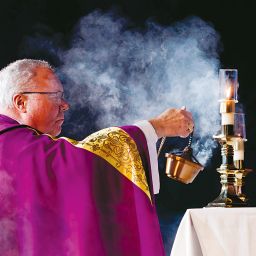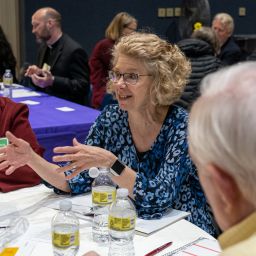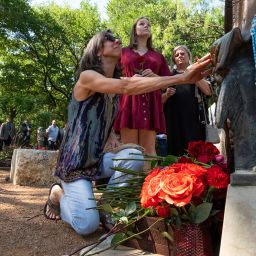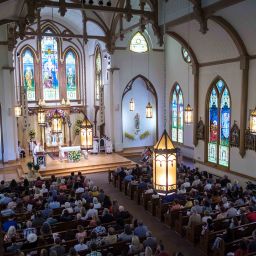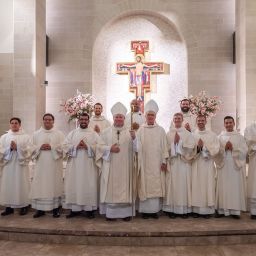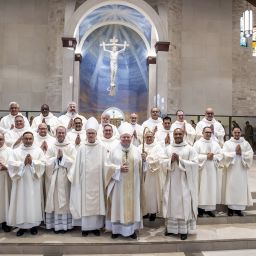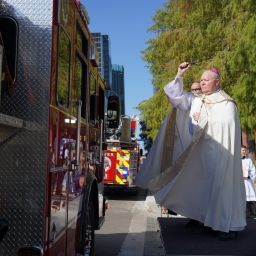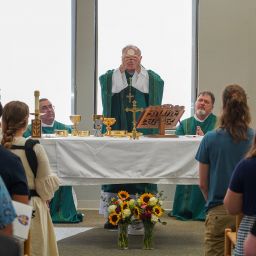
By Gregory Caridi
Special to The Texas Catholic
On Feb. 15, the final catechetical session concluded. This represented the end of one phase of the diocesan synodal process and the beginning of another. On March 26, the first public listening session will take place. Because these terms might be unclear, I thought it would be helpful to distinguish between the two and provide more information about these upcoming listening sessions.
[Learn more about the Diocese of Dallas Synod and register for an upcoming Listening Session. ]
Catechetical sessions were aimed at doing exactly what their name implies: teaching and catechesis. These sessions opened with prayer, and members of the synod preparatory commission provided an overview of the background, purpose and goals of the diocesan synod. It was also an opportunity for attendees to provide general feedback about the Diocese of Dallas as well as the synodal process and to ask questions of Bishop Burns. It was, in other words, an opportunity for the diocese to teach the faithful and vice versa: a kind of learning together.
Listening sessions will emphasize something much different. Instead of a time for teaching and catechesis, attendees will answer a number of questions related to a specific topic or group in the Church. The synod preparatory commission will draw from the answers to these questions in developing the synod resolutions that will be voted on at the synod meeting itself in 2024.
The following are the potential topics that will be addressed at the public listening sessions (these are not in any particular order and are subject to change).
- Children, Youth and Adult Faith Formation (to take place on March 26, 2022)
- Sunday Celebration of the Mass and other Liturgies
- Marriage and Family
- Catholic Social and Moral Teaching and the Church in the World
- Non-practicing Catholics and non-Catholics: Dialogue and Outreach
- Vocations and Ministerial Formation
- Evangelization and Communication
- Sacraments and Sacramental Preparation
- Diocesan Efficiency and Church Governance
- Resource Management, Project Planning and Growing the Church
Additional targeted listening sessions will take place for particular groups with members of those groups. For example, potential targeted listening sessions include: Movements and Organizations in the Church; Seminarians, Clergy, and Religious; Catholic Education; Young Adults in the Church (18-35), etc.
Beyond providing an opportunity for individuals to express their views, listening session responses will be vital for the development of resolutions in order to have a successful synod meeting. These responses will contain important information so that the preparatory commission can understand the hopes and needs of the diocese.
It is important to note that these listening sessions are not town hall meetings, but the answering of the questions will occur in a small group discussion format. It is also important to emphasize that the diocesan synod and the listening sessions will not be addressing dogma, doctrine or issues of the Church’s magisterium. Instead, this is an opportunity to discuss and respond to how the diocese might better serve the faithful in the areas noted above.
This is truly a historic opportunity to have your voice heard, and I encourage everyone who can participate to consider attending one or more sessions. A full schedule of the topics and dates will soon follow. I hope to see you there.
Gregory Caridi is the chancellor of the Diocese of Dallas.

